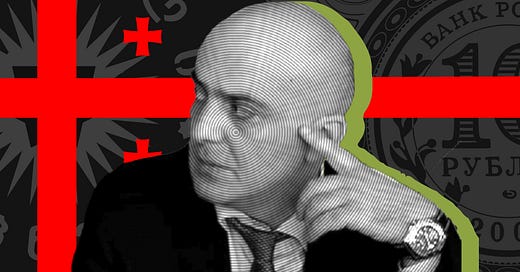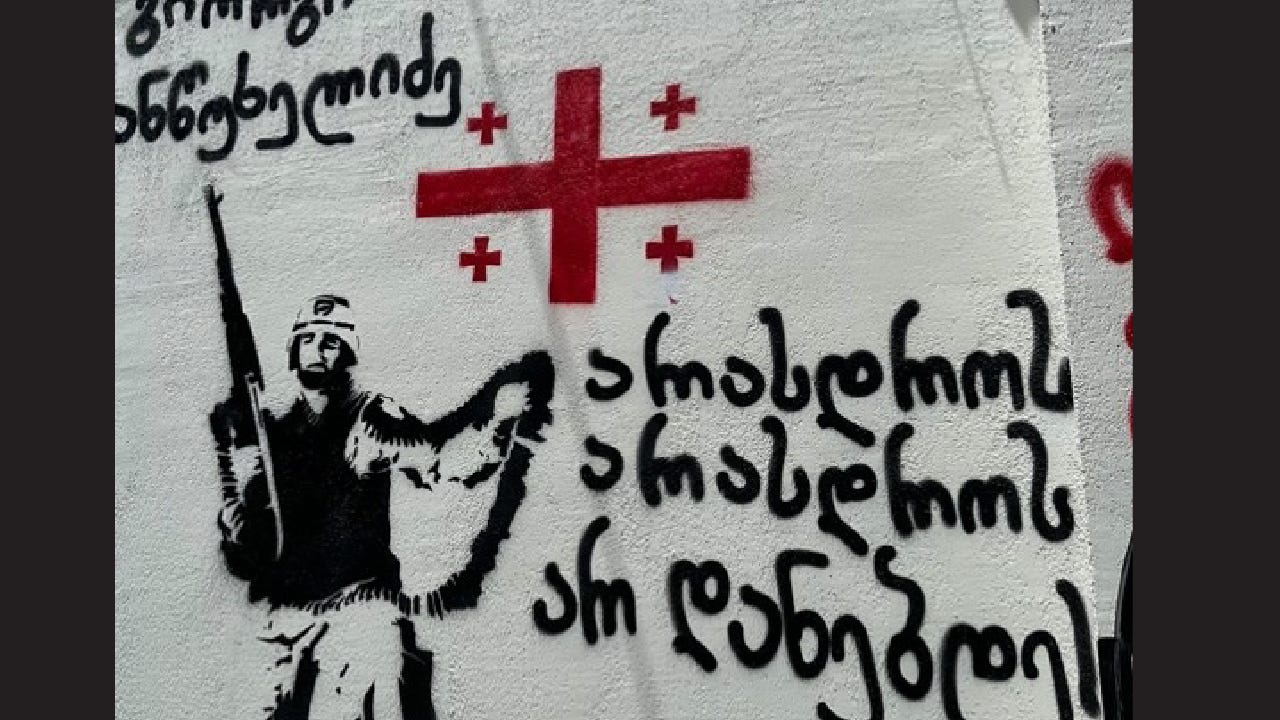The Impact of One U.S. Sanctions Designation in Georgia
This essay will try to examine first the crisis itself, and then to explain what impact it may have on Georgia.
On 14 September, the United States sanctioned a (former) senior Georgian government official for the first time under its Russia-related designations, using the specifically designated nationals (SDN) authority that is the strongest and most far reaching instrument in the sanctions toolkit. Otar Partskhaladze was sanctioned for working with Russian FSB Officer Aleksander Onishchenko, who reportedly helped him secure a Russian passport and the “FSB have leveraged Partskhaladze to influence Georgian society and politics for the benefit of Russia” per the US Treasury’s press release. Onishchenko was also hit with the SDN sanctions as were two Russian companies in which Partskhaladze reportedly owned 50% and had been involved in the efforts, LLC Moscow Business Brokerage and LLC International Business Corporation.
The decision to designate Partskhaladze and out him publicly for serving as a FSB officer’s agent has caused another political crisis in Tbilisi, whose ruling Georgian Dream government has not joined the Western-sanctions regime despite its stated EU and NATO aspirations.
The decision to thus designate Partskhaladze and out him publicly for serving as a FSB officer’s agent have since caused another political crisis in Tbilisi, whose ruling Georgian Dream government has not joined the Western-sanctions regime despite its stated EU and NATO aspirations. Georgia has undoubtedly benefitted from the exodus of Russians and Russian businesses in the aftermath of the full-scale invasion last year, with Georgian GDP growing nearly 10% and the Georgian lari the second-best performing currency in 2022, gaining 16% despite the US dollar strength that year driven by rising US interest rates – all largely thanks to Russian money flowing into the country as it fled Putin’s militarization and sanctions. But for the overwhelming majority of Georgians, such concerns are secondary to the fact that Russia effectively controls its two breakaway states of Abkhazia and South Ossetia – a process that appears to be deepening particularly after the 5 October 2023 announcement that Russia will apparently finally move to open a major naval base in Abkhazia.
To drive home the point, Tbilisi is covered with graffiti proclaiming its opposition to Putin, denouncing Russia, and hailing the fallen volunteers who have fought for Ukraine against the invasion and against Russia during the 2008 Russian-Georgian War.
Giorgi Antsukhelidze, ‘Never Ever Give Up’
But the Georgian Dream government, in power since 2012, has repeatedly said that it will not join the sanctions and claimed that it is wary pressure on it to do so could open up a ‘second front’. The Georgian Dream also has poor relations with Ukraine’s government given that it has supported ex-president Mikheil Saakashvili, who served in various positions in Ukraine after leaving Georgia when his presidential term ended (not without controversy), and who was jailed in Georgia on abuse of office charges after returning to the country in 2021. Yet the Georgian Dream has repeatedly denied any pro-Russia position, though its all powerful de facto leader, former prime minister and billionaire Bidzina Ivanishvili, has sought to avoid being drawn into the issue, even as Kyiv has targeted his family with sanctions.
Any long-term observer of Georgian politics knows that Ivanishvili really calls the shots in Tbilisi despite not having held a government post since giving up the prime ministership nearly a decade ago.
Any long-term observer of Georgian politics knows that Ivanishvili really calls the shots in Tbilisi despite not having held a government post since giving up the prime ministership nearly a decade ago. Having made his fortune in Russia in the 1990’s and early 2000’s his net worth is estimated at $6 billion by Bloomberg – around one quarter of the country’s 2022 GDP. Subsequent prime ministers have repeatedly been shuffled under his rule and those with real influence are those seen as close to him personally.
Partskhaladze is one such individual. Ivanishvili's rapper's son is godfather to Partskhaladze's grandchild and despite Ivanishvili’s denials of any personal friendship (instead claiming he is a family friend), he was an early appointee to the Georgian Dream governments, serving briefly as General Prosecutor in 2013. Partskhaladze only held the post for six weeks, having resigned after it was revealed that he had a criminal rap sheet in Germany. He was revealed to be working to promote Russian business in Georgia, including those aimed at helping investors obtain Georgian residence permits and citizenship as early as February 2023 and the previous year he had publicly lobbied for the restoration of direct flights between the two countries and for Russia to cancel its visa regime for Georgians, actions that ultimately did come to pass and which also triggered protests in Georgia. Earlier investigations had alleged that he had corruptly received land from Georgian authorities back in 2018.
But the Georgian government’s response to his SDN designation only made the situation worse, and more politically salient in Georgia. Georgia’s central bank, the National Bank of Georgia (NBG) initially announced September that it would effectively implement the sanctions, blocking his accounts, before reversing itself just on 19 September after it was publicly criticized by Irakli Kobakhidze, Georgian Dream's chairman, for doing so. This caused a brief spat with both the NBG and Georgia’s president, Salome Zourabichvili, a former French diplomat (born to a family that fled the Soviet Union’s 1921 invasion of Georgia in that country before returning under Saakashvii to serve as Georgia’s Minister of Foreign Affairs in 2004-2005, and like most of his erstwhile allies, subsequently falling out with him). Ivanishvili backed Zourabichvili in Georgia’s 2018 presidential election but she has been far more pro-Ukrainian since the February 2022 full scale invasion of Ukraine and has never been a member of the Georgian Dream party.
On 20 September, three out of four vice presidents at the NBG resigned, as did an advisor to the bank's acting president, over the decision to effectively shield Partskhaladze from US sanctions. That left only Natalia Turnava, who was already rumoured to be set to take over the bank’s presidency, in office. Zourabichvili called for her resignation as well. Zourabichvili also started the process to strip Partskhaladze of his citizenship for accepting Russian citizenship, however, in a surprise move on 22 September announced she would not proceed with this. She said this was so Partskhaladze could face criminal charges as a Georgian citizen, though the move has set many tongues a-wagging over whether she was pressured to reverse herself.
Thanks to the NBG’s reversal, Partskhaladze was able to transfer his Georgian assets to his son. That may remove some headaches for him, but the reality is that the sanctions will still be stinging.
Thanks to the NBG’s reversal, Partskhaladze was able to transfer his Georgian assets to his son. That may remove some headaches for him, but the reality is that the sanctions will still be stinging. Although Georgia does not itself have sanctions on its legislation, its two largest banks, TBC and Bank of Georgia, are both listed on the London Stock Exchange, and have their ultimate parent companies in the UK. As a result, they must abide by UK sanctions, and given the extraterritoriality of US sanctions and the close ties between the UK and US, this brings them within the purview of the US SDN sanctions. Even if Partskhaladze banks with other entities in Georgia, he will be barred access to US dollars and related foreign transactions because the two banks are the only banks in the country with correspondent banking status. This means that the two banks are directly involved in any foreign transactions in the currency, even for other Georgian banks, which operate through them.
Therefore Partskhaladze’s assets in Georgia are effectively trapped in the country, despite the NBG’s reversal. But the move nevertheless sends a major negative signal to Western partners and investors, who despite being displaced by Russian capital in 2022, remain key to the country’s long-term agenda. The NBG itself needs a new head. Turnava has been serving in an acting capacity since being proposed by Zourabichvili and approved by the legislature in July, after the expiry of the seven year term of Koba Gvenetadze. Zourabichvili has since apologized for the move and called on Turnava to resign (albeit before her own reversal on the decision regarding Partskhaladze’s citizenship). The signal the scandal has sent has been a chilling one, with Turnava herself acknowledging on 26 September that the IMF had suspended its programme for Georgia over concerns about the NBG's independence and sanctions enforcement.
How Georgian Dream, and in particular Ivanishvili, act next regarding the future of the NBG could well determine Georgia’s political, and economic relations, with the West.
How Georgian Dream, and in particular Ivanishvili, act next regarding the future of the NBG could well determine Georgia’s political, and economic relations, with the West. The Partskhaladze affair bodes poorly – something the Georgian Dream seems to have acknowledged in rushing through a bill limiting protesters’ rights at the beginning of October, something it claims is necessary due to alleged attempts to “repeat the Ukrainian Euromaidan scenario in the country and forcibly change the government in October-December” – a clear dig at the US amid criticism from Georgian Dream that civil society organizations it backs are involved in such attempts (which the US Embassy in Tbilisi has denied).
The one sanctions designation against Partskhaladze’s own impact is relatively limited, as are the NBG’s attempts to effectively mitigate its impact, but the result may have far more wide-reaching economic and political implications because of the tumultuous politics around it, and what it has revealed about the true state of US-Georgian relations.







